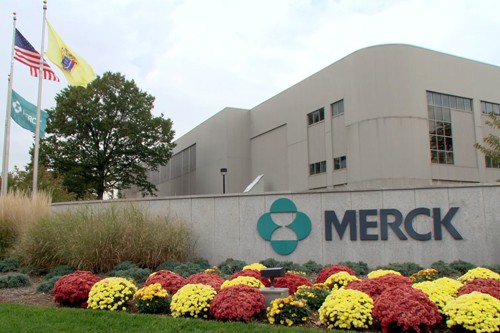
Merck & Co (Merck) – known as MSD outside the US and Canada – has reported positive results from a phase 3 study of its anti-PD-1 therapy Keytruda (pembrolizumab) in combination with chemotherapy for certain gastric cancer patients.
The KEYNOTE-859 trial is evaluating Keytruda in combination with fluoropyrimidine- and platinum-containing chemotherapy in 1,579 patients with HER2-negative locally advanced unresectable or metastatic gastric or gastroesophageal junction (GEJ) adenocarcinoma.
Gastric cancer is the fifth most diagnosed cancer and the fourth leading cause of cancer deaths worldwide, with nearly 1.1 million new cases diagnosed and more than 768,000 deaths from the disease globally in 2020. Most gastric cancers are adenocarcinomas, which develop from cells in the innermost lining of the stomach.
Because gastric cancer tends to develop slowly over many years and rarely causes early symptoms, most cases go undetected until an advanced stage, with more than 70% of patients developing advanced-stage disease.
Results from KEYNOTE-859, which were presented during a European Society for Medical Oncology plenary, showed the Keytruda combination significantly improved overall survival after a median follow-up of 31 months, reducing the risk of death by 22% compared to chemotherapy alone.
The combination also showed a 24% reduction in the risk of disease progression or death compared to chemotherapy alone, and produced a significant improvement in objective response rate – two secondary endpoints of the trial.
Median duration of response, another secondary endpoint of the trial, was eight months for Keytruda plus chemotherapy versus 5.7 months for chemotherapy alone.
Keytruda has already been granted accelerated approval in the US in combination with trastuzumab, fluoropyrimidine- and platinum-containing chemotherapy to treat patients with locally advanced unresectable or metastatic HER2-positive gastric or GEJ adenocarcinoma.
Dr Scot Ebbinghaus, vice president, clinical research, Merck Research Laboratories, said: “Based on this new data, we hope to expand the use of Keytruda and provide an option that, in combination with chemotherapy, may help more of these patients live longer.
“These results also reinforce our commitment to research in gastrointestinal cancers, where we continue to evaluate a number of Keytruda-based combinations, including in earlier stages of disease.”
In addition to its clinical development programme evaluating Keytruda in gastrointestinal cancers, the company is continuing to study the drug for multiple uses in hepatobiliary, oesophageal, pancreatic, colorectal and biliary tract cancers.




